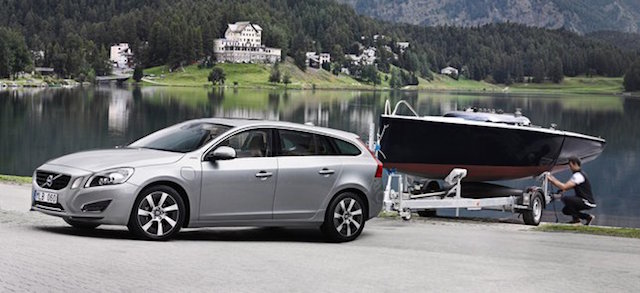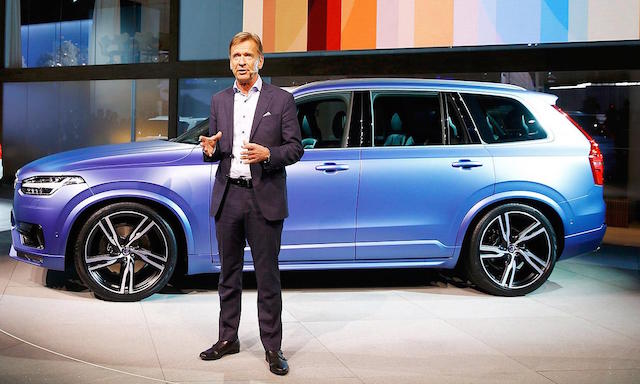
The cost of continuing to meet ever-tightening exhaust emission rules in Europe is likely to rule out diesel beyond 2020 as a mainstream fuel for passenger cars, says Volvo CEO Hakan Samuelsson.
Using current technology to get CO2 emissions down to the legally required 95 grams per kilometer by 2020 can be done, he said, but future limits for combustion engines will need the addition of electrics.
“Coming further down on 95gr/km, then I’m quite sure the diesel engine cannot help us. Then it’s only electrification,” he said. “Just improving the efficiency of a combustion engine, I think, is already done. “The next step is hybridisation and pure electric cars (EVs).”
Samuelsson (below) told news sites in Europe that Volvo would continue to refine the turbocharged 2.0-litre diesel engine it uses in its cars and SUVs, including the plug-in hybrid V60 (top).
“But if you look now until around 2020, we have this 95gr/km CO2 requirement, and to be able to cope with that requirement we have very few options, and by we, I mean the industry,” he said.
“We have to make a diesel engine with the same emissions as a petrol engine. That can be done, but it will cost money. The diesel engine will be more expensive, that’s why long term it’s a negative thing,” he said.
“The only option then is electrification. So until 2020, we believe the diesel engine has a very important role to play – if you want to keep those CO2 levels, and I think nobody is willing to give up that and allow higher CO2,” he said.
“But after that, the diesel will be expensive, and hybrids and all-electric cars will be more favourable cost wise, as volumes of batteries goes up and the cost goes down.”
Volvo will have its first all-electric car in showrooms in 2019, on its way to one million EVs on the road by 2025. “We are developing not just one model,” said Samuelsson. “We’re developing electrification for the small platform, and electrification for the big platform.
“We see the future is electrified, and we want to be fast in that transition – and that’s why we have this commitment, one million cars on the road, and that’s also one million cars of potential business for somebody investing in charging.”

